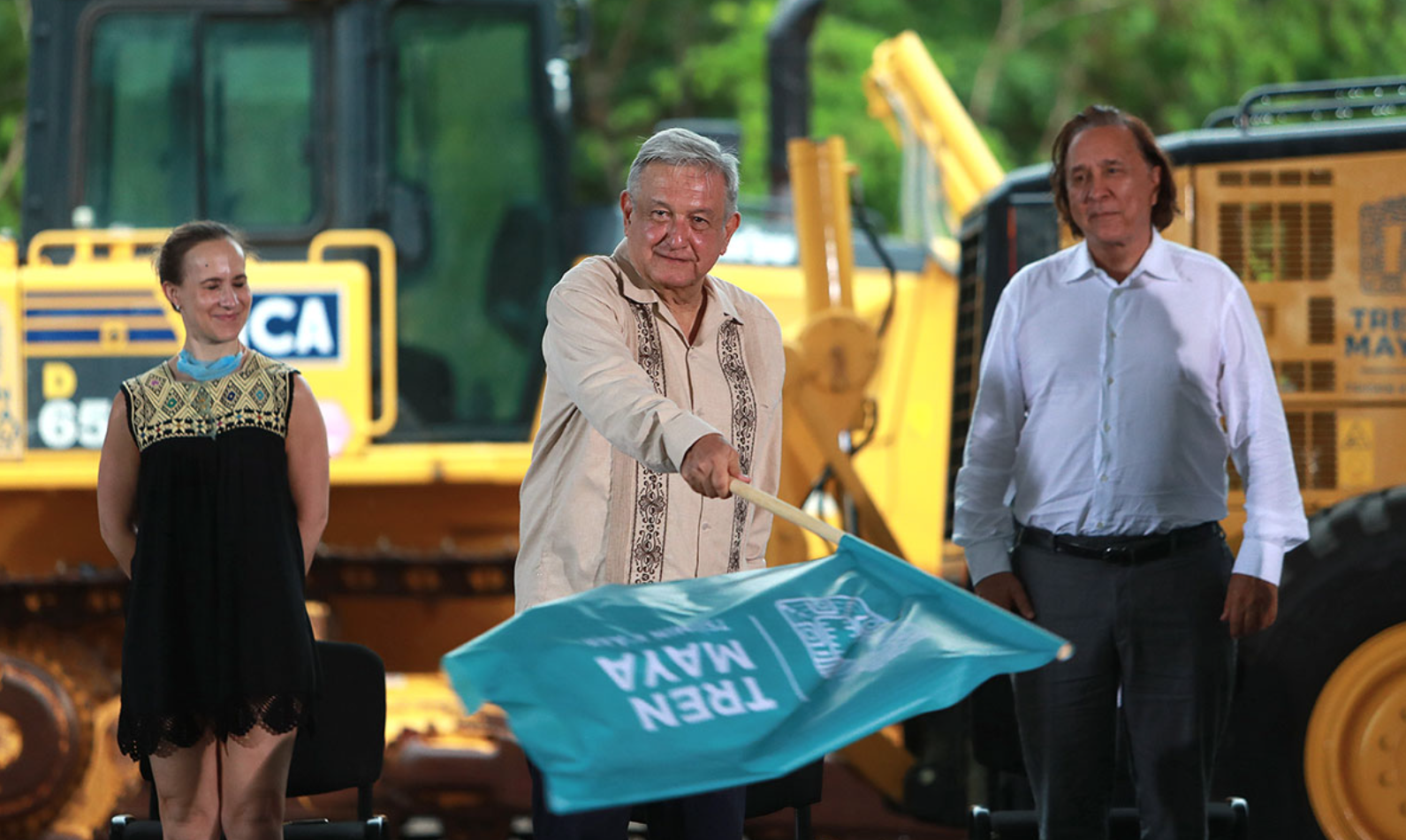This will not be an easy year for Mexico, taking into account the complex international situation and the political dynamics for President Andrés Manuel López Obrador’s party to reach a consensus to choose the candidate to succeed him. The world is restless with the wave of bad news ranging from the war in Ukraine to the global inflationary surge; from the energy crisis to the breakdown of global security systems; from the trade confrontation between the Western world and China to supply chain pressures; from the deterioration of democracy to the rise of populism; and from social protest to the weakening of electoral systems. In fact, it is a harsh and deadly winter.
In this framework, if that were not enough, political leaders, who must sit down to talk and agree on stabilization strategies, must confront internal dynamics in a society called to vote in the “largest and most complex concurrent elections” in national history to be held in the summer of 2024. These will be their main challenges:
Pandemic. Although the effects of the sixth wave have not become a serious public health problem and the reintroduction of certain social control measures such as confinement or healthy distance have not been raised, the COVID-19 pandemic is present as a global threat due to the virus’s behavior among the Chinese population. It is a matter of time to know what its impact will be in Mexico. While this is happening, national statistics show an increase in the number of infections in the last few weeks and, as in previous years, the end-of-year festivities have encouraged the multiplication of cases.
Inflation. The inflationary process is underway in the world, and in Mexico, it is officially around 10% annualized. However, that is not what retail market prices reflect, even for products that come from the Mexican countryside or seas. In spite of this, President López Obrador has tried to exorcise the increase, pointing out “that there will be no January slope”, as if the behavior of the local economy was decided in the National Palace and was not part of the international dynamics.
Organized crime violence. Even when public security is in the hands of the military, the numbers are still very high. In the period between 2018 and September 2022 there were 112,250 homicides, we are told, and in this equation, those killed in 2022 represent a reduction of 10.3% compared to 2021. But there is an alarming datum: the number of missing and unaccounted-for persons in this period exceeds 30,000. In 2022 alone, it is estimated that there were almost 11,000. If we cross this datum with the low number of people located, we could infer that most of them are buried in clandestine graves.
The energy crisis. The increase in fuel prices is undoubtedly a major inflationary element. The problem is that fuel prices are international, except when they are subsidized, which means a reallocation of public spending. In other words, some economic or social sector loses with the transfer of money from one basket to another. This variable will be present in 2023, taking into account the 2024 presidential elections, which, for political reasons, will be accompanied by a relative normalization of the economy. However, the federal budget includes, for 2023, an increase in the price of gasoline and its derivatives.
The selection of the ruling party’s presidential candidate. The presidential succession with its paraphernalia of anticipated campaigns will be present throughout this year. 2022 closed with a strong smear campaign against the National Electoral Institute, a series of unconstitutional reforms to reduce its power, structure, and budget, and with the official candidates skirting the rules. The democratic construction of four decades is in question.
The 2022 local elections in the State of Mexico and Coahuila will be a laboratory of what will happen in 2024. There is the precedent of the 2021 elections when organized crime intervened supporting and removing candidates in several states. This had an impact on the political representation in favor of the Morena Party in 22 of the 32 states of the federation, while the divided opposition does not end up presenting itself as a reliable government alternative.
The insignia projects of the Obradorist government. The so-called government of the Fourth Transformation has three major projects that have been the cause of constitutional and media controversies due to their economic and environmental impact: the Santa Lucia Airport in Mexico City, the Dos Bocas refinery in Tabasco and the Mayan Train in the southeastern region.
After interrupting the construction of the airport that was underway in Texcoco, which represented and represents multi-million dollar losses for public finances, the airport that was promoted by the President was inaugurated last summer. This work, however, is practically in disuse and President López Obrador is seeking, at the last minute, to project it with the landing of the planes that will bring Joe Biden and Justin Trudeau when they arrive at the North American Summit.
Similarly, the refinery goes against the logic of the future of the world energy market, which is betting on clean energy. Although it was inaugurated, by the end of 2022 it had not produced a liter of gasoline, although before the end of the year the president announced that by 2023 it would be producing 170,000 barrels per day and that, in this way, the country would advance in the so-called energy sovereignty.
At the same time, there are the construction works of the railroads in the jungle of the Mexican southeast, which have been questioned by environmental groups due to the damage they cause to the habitat of different species. In fact, the Zapatista Army of National Liberation has declared against the project and is threatening to fight it.
Finally, political polarization makes it more difficult to build agreements to maintain public policies in the long term, which means a permanent instability ingredient in a complicated scenario for governance.
*Translated from Spanish by Janaína Ruviaro da Silva











